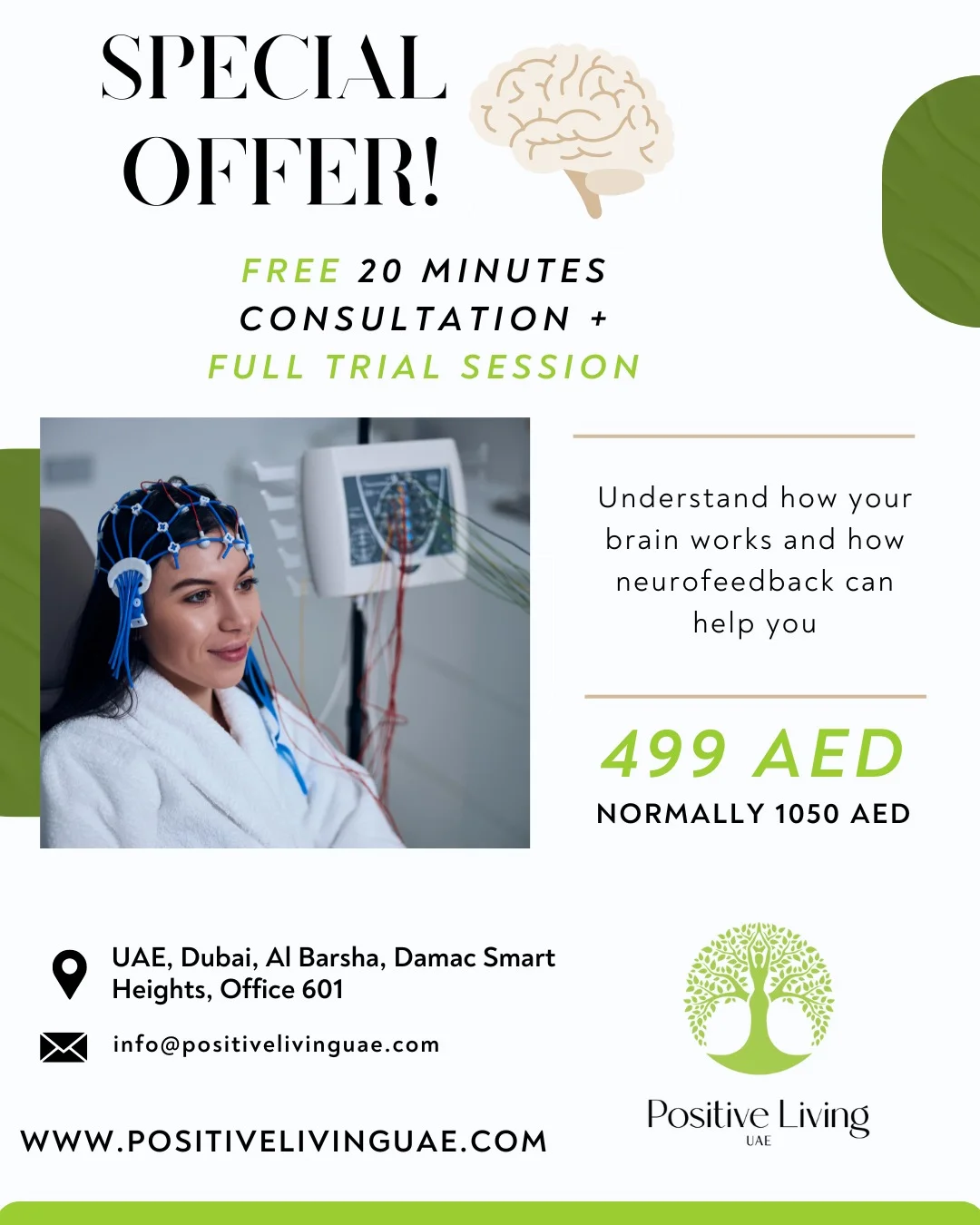Best Hypnotherapist in Dubai: How to Choose the Right Expert for Your Mental Wellness
In today’s fast-paced world, more and more people struggle to maintain their inner peace. As a result, alternative therapies for mental wellness are growing in popularity. Among these, hypnotherapy stands out as a powerful approach that incorporates both modern psychology and traditional techniques. Before selecting a hypnotherapist in Dubai, it is essential to develop a thorough understanding of the practice in order to make an informed decision.
Hypnotherapy, also known as hypnosis therapy, is an effective technique that uses guided relaxation and focused attention, promoting meaningful psychological and emotional changes in your mind. During a session, the trained hypnotherapist gently guides you into a relaxed trance-like state using soothing language, visual imagery, and rhythmic repetition. In this relaxed state, you become more open to constructive suggestions that can reshape how you perceive and respond to life’s challenges. Despite how it is often portrayed, hypnotherapy is not mind control. Instead, you stay fully aware and in charge, using the power of gentle suggestions to support positive changes in thoughts, behaviors and emotions.
Finding the right hypnotherapist in Dubai begins with understanding how the process works and how you can benefit from it. Essentially, hypnotherapy helps access the subconscious mind to break unhelpful patterns. It is considered a top-down approach, relying on verbal suggestions provided by the therapist.
Hypnotherapy is often compared to deep meditation, as it creates a state of calm focus where you remain alert yet relaxed and open to change. Under the guidance of a qualified therapist, you are gently led into this state and introduced to positive suggestions. When conducted effectively, clients typically recall the experiences and report feeling empowered afterwards.
What Hypnotherapy Can Help Treat
Hypnosis therapy in Dubai has gained recognition for its ability to address a wide range of issues. Studies have highlighted the effectiveness of hypnotherapy in supporting mental health challenges such as anxiety, stress, panic, phobias and PTSD. Additionally, it is also frequently used to promote positive behavioral changes, including smoking cessation and weight management, by reprogramming thought patterns around these habits. Furthermore, hypnotherapy has been shown to ease chronic conditions such as pain, insomnia, migraines, and irritable bowel syndrome (IBS) by calming the mind-body connection.
- Anxiety and Stress: Hypnosis can help teach your mind to relax and cope with anxious thoughts.
- Phobias and Fears: Through guided visualisation and relaxation techniques, individuals can face feared situations more confidently, making it easier to overcome phobias such as the fear of flying, spiders, etc., more easily under hypnosis.
- Smoking and Habits: Clinical hypnosis is often integrated into behavioral change programs to support smoking cessation and reduce other unwanted habits by reshaping subconscious triggers.
- Weight Management: Therapists use suggestions that can help clients feel more satisfied with smaller portions, make healthier food choices, and maintain gradual, sustainable weight loss.
- Other Uses: Hypnotherapy has also shown benefits for managing depression, chronic pain, insomnia, irritable bowel syndrome (IBS), migraines, and even menopause related symptoms by calming to mind-body connection.
These examples highlight the versatility of hypnosis. However, it is important to remember that it is not a quick fix or a miracle cure, but rather a therapeutic tool that is most effective when integrated into a broader wellness plan.
Signs of a Qualified Hypnotherapist
When choosing an expert, it is important to find a therapist who is well-trained, highly professional, and experienced. Below are some key signs that indicate a qualified hypnotherapist.
Professional Training and Certification
A qualified hypnotherapist should have formal education or certification in hypnotherapy, often a diploma or certificate from a recognised school. Keep in mind hypnotherapy isn’t strictly regulated, so verify that they were trained at a reputable institution. Membership in professional bodies like the National Board for Certified Clinical Hypnotherapists or similar organisations is another good sign. For example, the NBCCH, a major U.S. certifying body, requires over 50 hours of specialised training for certification.
Licensing and Credentials
If applicable, check that the therapist is licensed by the relevant health authorities or holds a healthcare license if required. Licensed clinical psychologists or counsellors may also offer hypnosis as part of their services. Licensed practitioners usually carry professional liability insurance, indicating a commitment to safe, ethical practice.
Experience and Specialisation
Look for years of experience and expertise in your area of need. Some hypnotherapists specialise in certain issues like anxiety, weight loss, addiction, etc. Ask how many sessions or clients they have helped with issues like yours. An experienced practitioner will have worked with many people and be skilled at adapting techniques to different individuals.
Client Reviews and References
Read testimonials or ask for referrals. Reliable hypnotherapists will have positive reviews or be willing to connect you with past clients. Online reviews can give insight into how they interact with clients and the results achieved. Word-of-mouth or a personal referral is also valuable.
Communication and Comfort
A good hypnotherapist should be easy to talk to. During an initial consultation, often free or low-cost, they should explain the process clearly and make you feel at ease. You should feel comfortable sharing your concerns with them. If a therapist rushes you or doesn’t answer questions, they may not be the right fit.
By ensuring your therapist meets these criteria, including valid credentials, relevant experience, and a professional approach, you can feel confident in their ability to guide you safely through hypnosis.
Evaluating the Best Hypnotherapist in Dubai
Once you have found a few qualified candidates, evaluate who might be the best for you:
Certifications and Training
As noted, check exactly what training they have. Look for certification from recognised institutions. For example, a hypnotherapist certified by bodies like the NBCCH must complete extensive coursework. This indicates they’ve had substantial training and not just a weekend course or anything of the sort.
Clinical Experience
Ask how many years they have been practising hypnosis and what kind of cases they handle. Some top hypnotherapists have diverse backgrounds such as clinical psychology, counselling, and coaching. Verify they regularly work with clients on issues similar to yours.
Specialization
If you have a specific goal, say, overcoming smoking or weight loss, make sure the therapist has a track record in that area. Therapists often offer targeted programs like hypnosis for quitting smoking or anxiety control sessions.
Testimonials and Reviews
Search for feedback online, consisting of Google reviews, Facebook, and therapy directories. Consistent positive reviews are a strong indicator of quality. Best practitioners often have stories of success and clients who report feeling much better after therapy.
Consultation Experience
Many quality hypnotherapists offer a short introductory chat. Use this to gauge rapport. The therapist should listen well, answer questions, and explain how hypnosis might work for you. They should not promise miracles but outline a realistic plan. This may seem trivial, but trust your gut, the best hypnotherapist is one who earns your trust and seems genuinely interested in helping.
Why Choose Positive Living UAE
Positive Living UAE is an award-winning holistic therapy centre in Dubai, recognised for it’s expertise in hypnotherapy. Our team of certified clinicians have specialised training in clinical hypnosis and complementary therapies. In addition to hypnotherapy, we offer supportive approaches like psychotherapy, coaching and mindfulness, making your experience fully integrated and effective.
Clients trust Positive Living UAE because we prioritise professional standards, while providing compassionate, personalised care. Our therapists have years of hands-on experience helping individuals overcome anxiety, break habits and achieve personal growth. Above all, Positive Living UAE operates with integrity, confidentiality, compassion, and clear communication, which are at the heart of everything we do.
If you are searching for the best hypnotherapist in Dubai, Positive Living UAE combines proven methods with a warm, client-focused approach. We stay current with the latest research, and our clients consistently share positive outcomes from their sessions. Choosing us means placing your mental wellness in the hands of a dedicated team committed to your long-term well-being.
Book Your Consultation
Ready to experience the benefits of hypnotherapy with Positive Living UAE? Take the first step by booking a consultation. Our team will answer your questions and create a personalised plan designed to support your journey.
Don’t wait to transform your life! Book your consultation at Positive Living UAE today and discover how clinical hypnosis can help you live with greater clarity, balance and resilience.



